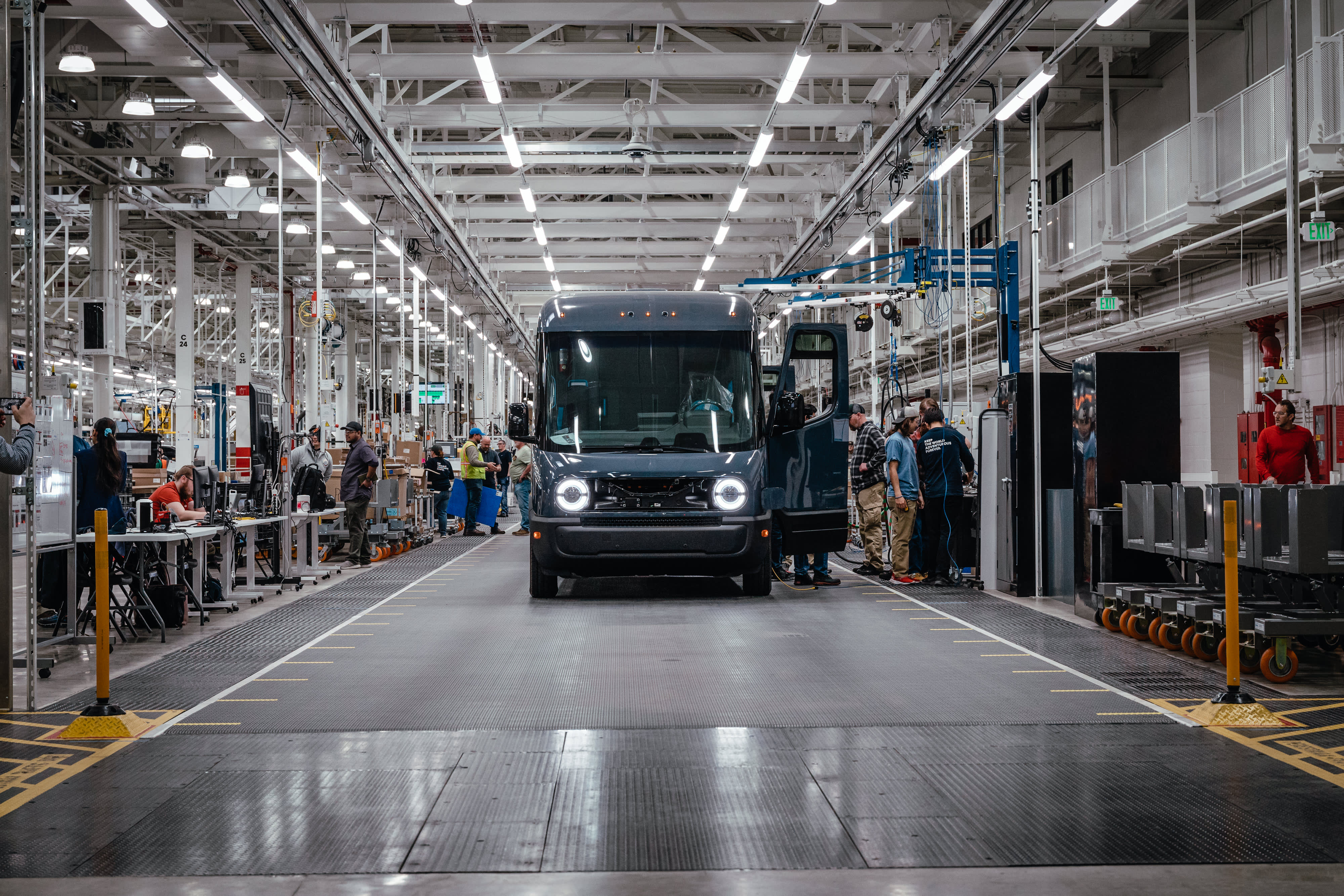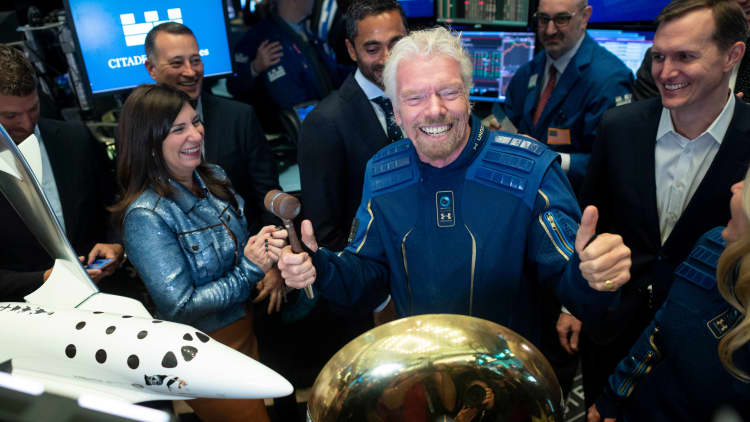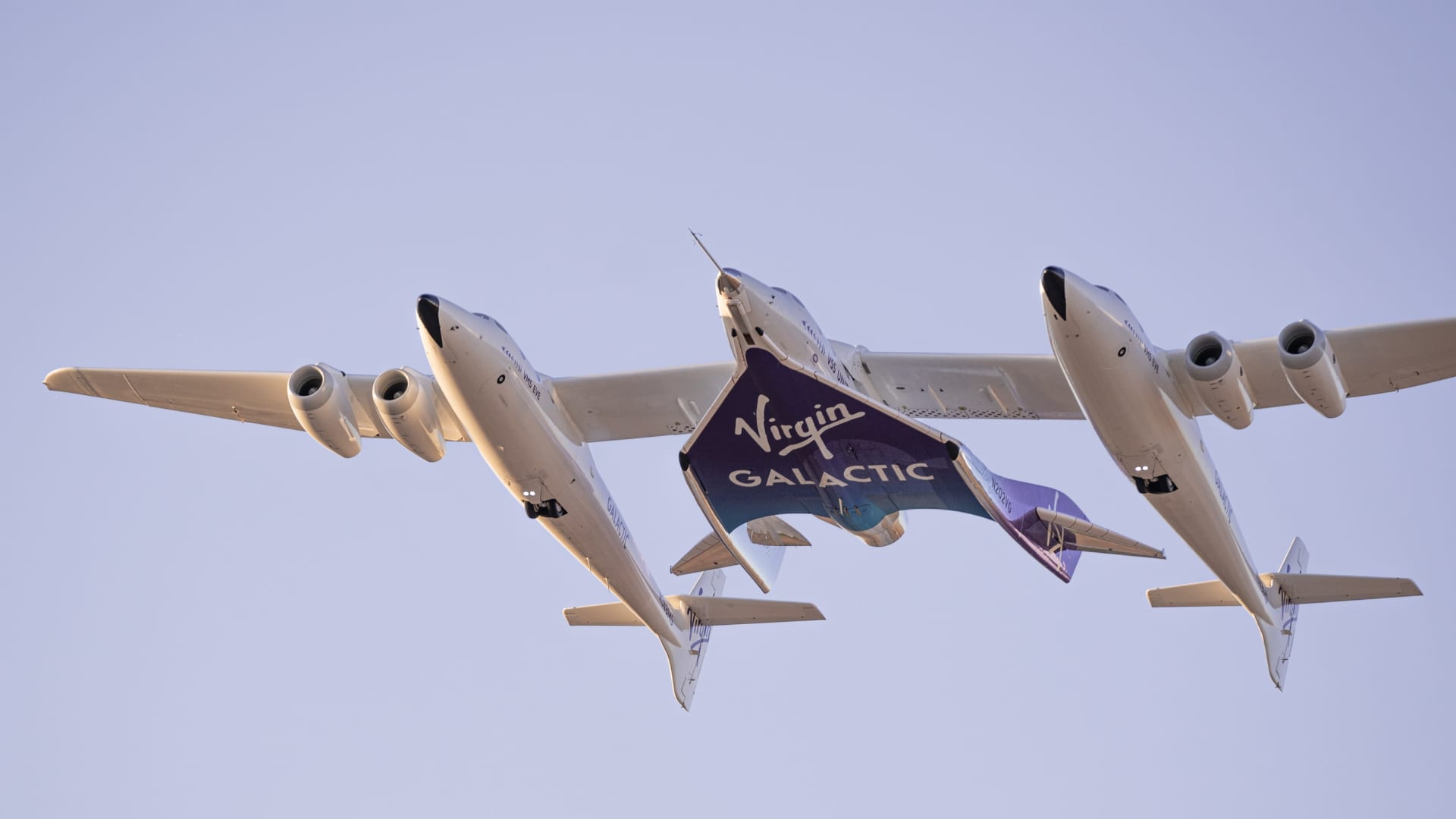Virgin Galactic attempts final test flight before beginning ticketed space trips
Aircraft VMS EVE carries with spacecraft VSS Unity during a flight test.
Virgin Galactic
Virgin Galactic is preparing to launch its first spaceflight in nearly two years on Thursday, as the space tourism company aims to pass a final test before flying commercial passengers.
Called Unity 25, the mission represents the company’s fifth spaceflight to date and is launching out of Spaceport America in New Mexico. It marks a “final assessment” flight, with six Virgin Galactic employees onboard for a short trip to the edge of space.
related investing news


Virgin Galactic will not publicly livestream the flight, unlike its previous spaceflight that carried founder Sir Richard Branson in July 2021. Instead the company plans to give updates on Unity 25’s progress on social media.
Carrier aircraft VMS Eve is expected to take off at about 10 a.m. ET, carrying the company’s VSS Unity spacecraft up to an altitude of about 40,000 feet before releasing the rocket-powered vehicle. VSS Unity will then fire its engine, aiming to climb past 80 kilometers (or about 262,000 feet) – the altitude the U.S. recognizes as the boundary of space.
Known as sub-orbital, this type of spaceflight gives passengers a couple minutes of weightless, unlike the much longer, more difficult and more expensive private orbital flights conducted by Elon Musk’s SpaceX. Depending on the outcome and data gathered from Unity 25, the company aims to fly its first commercial mission in “late June.”
Sign up here to receive weekly editions of CNBC’s Investing in Space newsletter.
VSS Unity will be piloted by Virgin Galactic’s Mike Masucci and CJ Sturckow, while carrier aircraft VMS Eve will be flown by Jameel Janjua and Nicola Pecile. In the passenger cabin will be Chief Astronaut Instructor Beth Moses, as well as astronaut instructor Luke Mays, senior engineering manager Christopher Huie, and senior manager of internal communications Jamila Gilbert.
A crucial moment
An aerial view of carrier aircraft VMS Eve, left, and spacecraft VSS Unity, at Spaceport America in New Mexico on Feb. 27, 2023.
Virgin Galactic
Unity 25 represents a crucial moment in the history of Virgin Galactic, which has suffered repeated setbacks and years of delays in developing its spaceflight system.
Branson’s spaceflight nearly two years ago came after almost 17 years of work, and over a billion dollars invested in the company. Before that, the spacecraft’s development saw several disasters, including a rocket engine explosion on the ground in 2007 that killed three Scaled Composite employees, as well as the crash of the first SpaceShipTwo vehicle, VSS Enterprise, in 2014 that killed Virgin Galactic co-pilot Michael Alsbury and injured pilot Peter Siebold.
After Branson’s spaceflight, Virgin Galactic paused operations for a longer-than-expected refurbishment period while the company worked on its spacecraft and carrier aircraft, following an FAA investigation into a mishap during his trip. The refurbishment process was intended to take about eight to 10 months, but ended up lasting nearly 16 months.
Virgin Galactic has yet to generate meaningful revenue, and needs to be flying spaceflights regularly in order to do so. While the company has nearly $900 million in cash and securities on hand, its quarterly cash burn continues to climb as it invests heavily in expanding its fleet of spacecraft.
Virgin Galactic needs to bring to market its future Delta class to fly weekly flights, but those spacecraft aren’t expected begin flying until 2026.
VSS Unity is designed to hold up to six passengers along with the two pilots. The company has 600 reservations for tickets on future flights, sold at prices between $200,000 and $250,000 each. It reopened ticket sales in 2021, with pricing beginning at $450,000 per seat.

For all the latest Technology News Click Here

